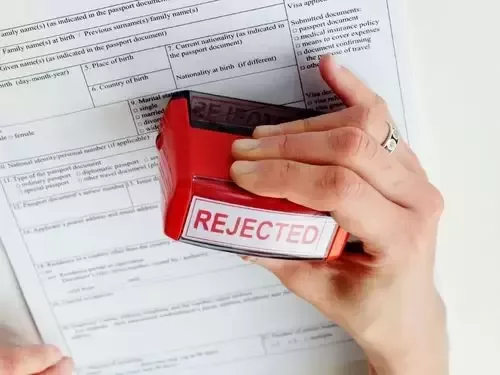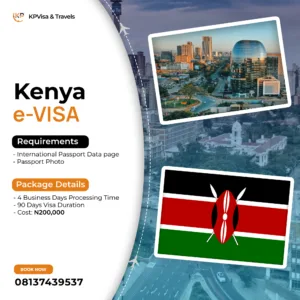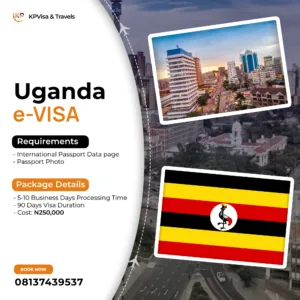Every year, thousands of Nigerians apply for UK visas, whether for tourism, study, family visits, or work. Unfortunately, many face unexpected visa refusals, often due to documentation issues, financial doubts, or concerns about their intentions to return. If your UK visa has been refused, don’t panic, you may have options to challenge the decision. From reapplying with stronger evidence to pursuing administrative or judicial reviews, understanding your rights and next steps is crucial. This guide explains everything you need to know about appealing a UK visa refusal from Nigeria, and how to turn a “no” into a second chance.
The Reality of UK Visa Refusal in Nigeria
Imagine planning a dream trip to visit family or attend an important conference in the UK. You carefully fill out your application, gather your documents, and wait anxiously for a response. Then comes the dreaded email or letter: “Your UK visa application has been refused.”
Unfortunately, UK visa refusal Nigeria is a reality many face daily. According to recent trends, thousands of Nigerian applicants are denied UK visitor visas each year, often due to misunderstandings or missing information. The good news? You have multiple options to appeal UK visa refusal decisions, or even reapply strategically to increase your chances.
If you’re asking, “What can I do after my UK visitor visa refused?” or “How can I appeal UK visa refusal in Nigeria?” this post will guide you through the best paths forward.
📌 Read More
Understanding UK Visa Refusal Reasons
When your UK visitor visa is refused, the Home Office will list the reason(s). Common UK visa refusal reasons include:
- Insufficient financial evidence
- Incomplete or inconsistent application forms
- Doubts over genuine intention to return
- Wrong visa type for your purpose
- Poor documentation or misrepresentation
Meet Chidi, a software engineer from Lagos. He had saved for months to visit his sister in Manchester. Everything was perfect, flight booked, accommodation sorted, sponsorship letter ready. And then: “visa refused.” His application, he was told, didn’t “convince” the Home Office he’d return to Nigeria.
Chidi felt despondent, “I’m gainfully employed, with strong family ties, why would they doubt me?” but this story isn’t unique. Many Nigerians face UK visa refusal Nigeria every day. The key? Knowing your options after refusal and acting fast.
Knowing the exact reason for refusal is step one. Once you have that, you can decide whether to reapply UK visa after refusal or go through an appeal.
Option 1: Reapply UK Visa After Refusal — Fix & Try Again
For many Nigerians, reapplying is the quickest and simplest option especially if your refusal was due to missing or weak documents.
How to make your reapplication successful:
- Thoroughly analyze the refusal letter and pinpoint the exact UK visa refusal reasons.
- Provide new or stronger evidence such as bank statements, proof of employment, or a letter of invitation.
- Include a clear cover letter explaining what you have done differently this time.
- Double-check that you are applying under the correct visa category.
Reapplying after a refusal is common, but it must be done with precision to avoid repeated rejection.
📰 Similar Posts
Option 2: Administrative Review UK Visa — Correct Mistakes Made
If you think your application was wrongly assessed or a document was overlooked, you may request an administrative review UK visa.
Key points about administrative review:
- It is only available if your refusal letter states you are eligible.
- You cannot add new evidence—only highlight mistakes or misinterpretations.
- You must apply quickly, usually within 14 or 28 days of refusal.
This option is best if you believe a Home Office error led to your refusal, such as a document not being considered.
Option 3: Appeal UK Visa Refusal Through the Tribunal
If your refusal letter states you have a right to appeal, you can take your case to the First-tier Tribunal (Immigration and Asylum Chamber).
Here’s what to know about the UK visa appeal process:
- Appeals must be lodged within strict deadlines (14 days if you are in the UK, 28 days if outside).
- You’ll complete Form IAFT-1 and pay a fee (£80–£140 depending on appeal type).
- New evidence can be submitted to challenge the refusal grounds.
- You can choose a paper-based review or an oral hearing.
- Decisions can take from 3 to 12 months.
Tribunal appeals succeed about 50% of the time, making them a strong option if you have valid grounds and the right to appeal.
Option 4: Judicial Review UK Visa — When Legal Errors Occur
If you suspect the Home Office acted unlawfully or unfairly in handling your case, a judicial review UK visa might be necessary.
This is a formal legal challenge where:
- You send a Pre-Action Protocol (PAP) letter demanding reconsideration.
- If unresolved, you escalate the case to the Upper Tribunal.
- It is a costly and time-consuming process, requiring expert legal advice.
- Judicial review is suitable only for serious procedural errors or breaches of law, not for simple mistakes or insufficient evidence.
What Are The Common Mistakes To Avoid?
- Missing strict deadlines for appeals or reviews.
- Failing to adequately prove financial stability and strong ties to Nigeria.
- Providing inconsistent or inaccurate information.
- Applying without understanding if you have appeal rights.
- Attempting to misrepresent facts, risking bans up to 10 years.
To avoid these pitfalls, consider working with an experienced UK visa refusal lawyer in Nigeria.
Many Nigerian applicants have successfully overturned refusals through appeals or administrative reviews. For instance, some have won tribunal appeals by demonstrating errors in the Home Office’s reasoning, while others have reversed bans by judicial review after wrongful accusations of fraud.
These examples show that while a refusal is disappointing, it’s not necessarily the end of your UK travel plans.
Summary Table for Choosing Your Best Option After UK Visa Refusal
| Option | Timeline | Cost | New Evidence Allowed? | Best For |
| Reapply UK visa after refusal | 4-8 Weeks | Standard Application Fee | Yes | Fixing missing/inadequate docs |
| Administrative review UK visa | 1-3 Months | Varies | No | Correcting processing errors |
| Tribunal Appeal UK Visa | 3-12 Months | 80-140 Pounds | Yes | Legal/factual errors with appeal rights |
| Judicial review UK Visa | 6-18 Months | High legal cost | Yes | Serious legal breaches |
What Should You Do Next?
Facing a UK visa refusal Nigeria can feel discouraging, but it’s important to remember there are options:
- For minor errors, re-apply UK visa after refusal with stronger evidence.
- If the decision was clearly wrong, request an administrative review UK visa.
- If you have the right, pursue a tribunal appeal UK visa for a formal hearing.
- For serious legal mistakes, explore judicial review UK visa with expert help.
- Act quickly, appeal windows are short.
Need help navigating your UK visa refusal? Contact us today for expert guidance and personalized support. Whether you want to reapply, file an administrative review, lodge an appeal, or pursue judicial review, our experienced UK visa refusal lawyers in Nigeria are here to help you every step of the way.





































No responses yet